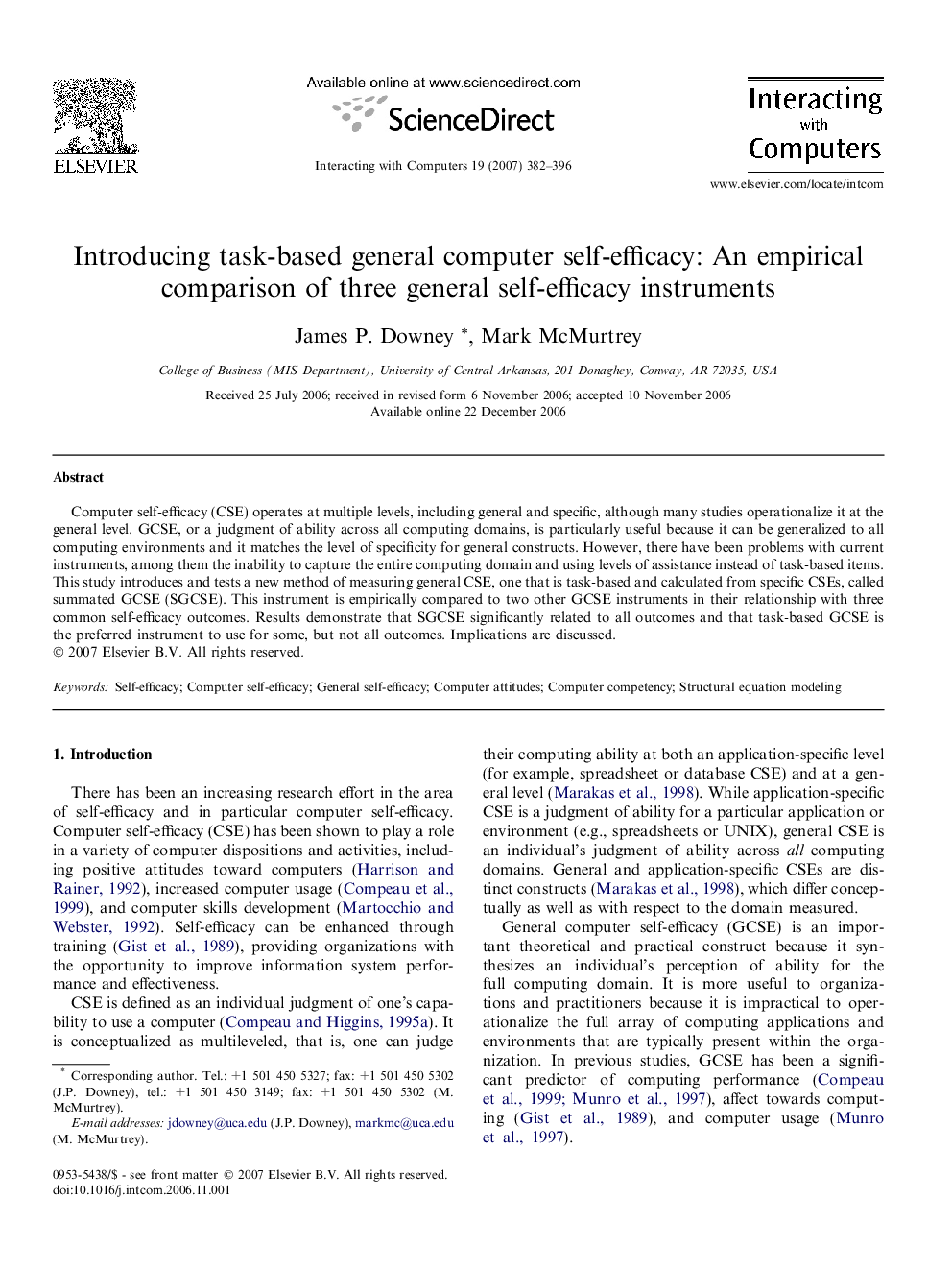| Article ID | Journal | Published Year | Pages | File Type |
|---|---|---|---|---|
| 553162 | Interacting with Computers | 2007 | 15 Pages |
Abstract
Computer self-efficacy (CSE) operates at multiple levels, including general and specific, although many studies operationalize it at the general level. GCSE, or a judgment of ability across all computing domains, is particularly useful because it can be generalized to all computing environments and it matches the level of specificity for general constructs. However, there have been problems with current instruments, among them the inability to capture the entire computing domain and using levels of assistance instead of task-based items. This study introduces and tests a new method of measuring general CSE, one that is task-based and calculated from specific CSEs, called summated GCSE (SGCSE). This instrument is empirically compared to two other GCSE instruments in their relationship with three common self-efficacy outcomes. Results demonstrate that SGCSE significantly related to all outcomes and that task-based GCSE is the preferred instrument to use for some, but not all outcomes. Implications are discussed.
Keywords
Related Topics
Physical Sciences and Engineering
Computer Science
Human-Computer Interaction
Authors
James P. Downey, Mark McMurtrey,
